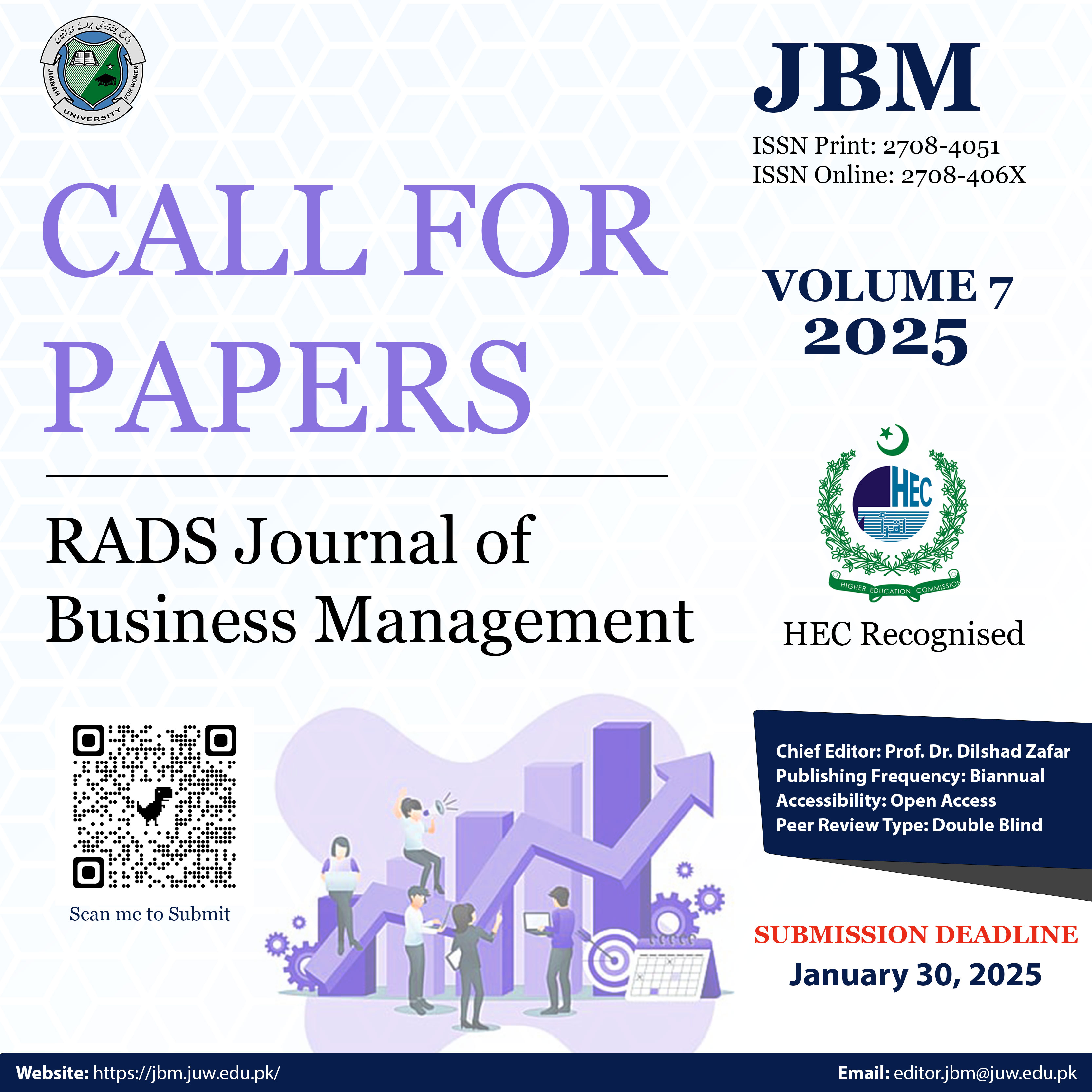Willingness to Pay More for Sustainable Products by Sustainability Generation (Generation Z) - Empirical Evidence from Pakistan
Abstract
Background: The objective of this study is to enhance the existing body of literature by conducting an empirical analysis focused on Generation Z, renowned for its heightened environmental consciousness and willingness to pay (WTP) premiums for sustainable products in Pakistan. By delving into the specific preferences and behaviors of this demographic, marketers can better allocate their resources and tailor products to meet the distinct needs of various generations. Thus, further research is imperative to gain deeper insights into the environmental concerns of Generation Z and inform strategic marketing decisions accordingly.
Methodology: The study adopts a deductive approach to assess customer willingness to pay (WTP) for sustainable goods, utilizing Daniel Soper's calculator for sample size determination. A total of 314 respondents from Generation Z, consumers of sustainable products, completed the questionnaires, which underwent pre-testing and adaptation. The relationship between sustainability drivers and consumers' propensity to pay premiums is analyzed employing the Partial Least Squares (PLS) approach.
Results: The results highlight th at Generation Z's consumption of green products is influenced by environmental concerns, perceptions of a greener future, and perceived quality of eco-friendly items. These factors collectively contribute positively to their willingness to pay premiums for sustainable products.
Conclusion: This study presented pioneering evidence on how perceptions of quality, benefits, and future green vision among young Pakistani Generation Z consumers impact their inclination to invest in sustainable products. Additionally, it sheds light on the signalling function of green products in this demographic.
Copyright (c) 2023 Uzma Anis, Syed Ahsan Zaheer, Reema Frooghi

This work is licensed under a Creative Commons Attribution 4.0 International License.
The author retains the copyright and grants the right of first publication to the journal.





